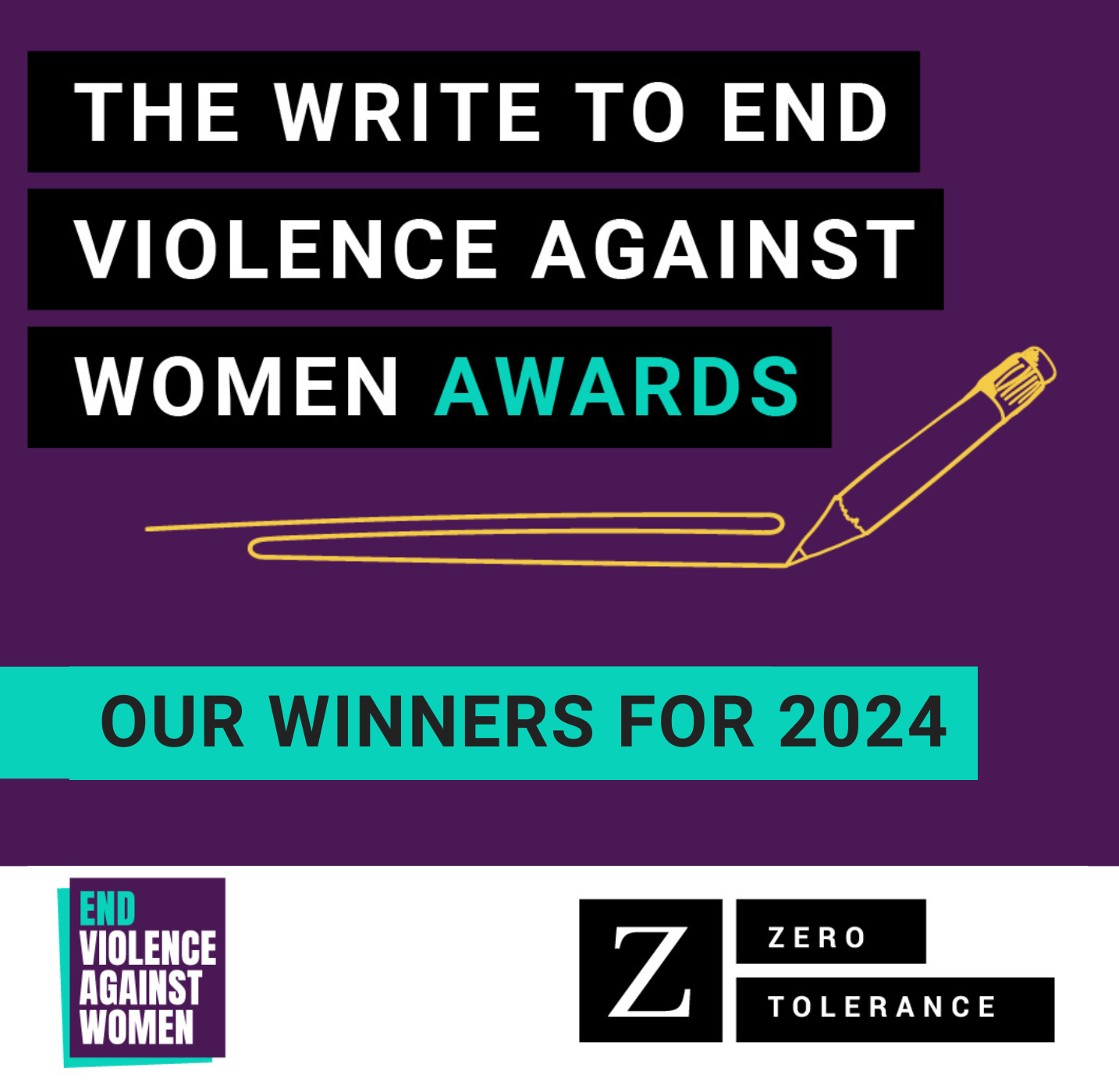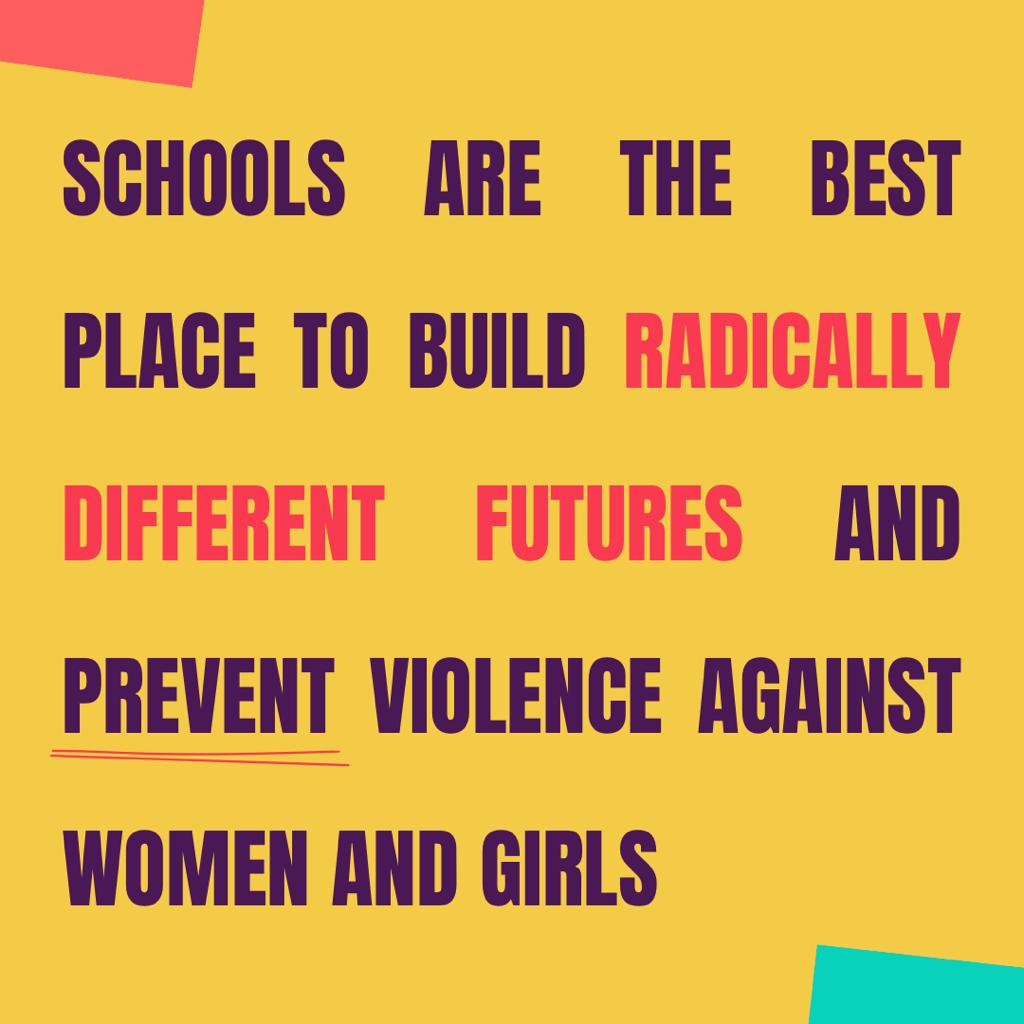 12 Dec
12 Dec
Download the report here
Download the large print report here
60% of girls have heard teachers use sexist language, according to a new report released today (Monday 12th June 2023) by the End Violence Against Women Coalition (EVAW).
Two years on from the landmark Ofsted review into sexual abuse in schools and colleges in England and Wales, the report finds major inadequacies in how schools are addressing sexual violence, stemming from government failures to adequately prioritise and invest in vital prevention work.
The report’s newly published data finds:
- 60% of girls have heard teachers use sexist language
- Of the 62% of young women who said comments about their body or uniform have made them feel uncomfortable, 26% said it was a teacher who made the comments
This follows recent EVAW data published in January that found:
- A third of girls think schools wouldn’t take it seriously if they reported sexual harassment
- 80% want schools to do more to tackle this and support young people’s sex and relationships education
Exploring the crisis of sexual violence in our schools, the report set outs the wealth of longstanding evidence of its scale and outlines why a Whole School Approach is the most effective way to both transform young people’s experiences at school and prevent violence against women and girls across the whole of society.
Schools are a critical site for the protection of children and young people, and present the best opportunity we have to challenge cultural attitudes which condone, trivialise and normalise abuse.
Mandatory RSHE in schools is not enough to end this crisis
“I reported a sexual assault that happened to me, I got a lot of blame for it. It’s quite hurtful – you’ve just reported and it makes you doubt what you’ve been through.” – Young person, #AboutTime focus group
In 2020, we saw a watershed moment for sexual violence in schools when young people’s experiences were brought to mainstream attention by the Everyone’s Invited movement. This led the government to task the schools regulator, Ofsted, with reviewing sexual abuse in schools and colleges across England and Wales.
The findings were alarming, with 9 in 10 girls reporting having experienced or witnessed at least one form of harassment or abuse. However, despite this, the government has failed to take action.
Although RSHE is now mandatory in schools, there remain many issues with its delivery; with teachers reporting feeling under-resourced and unequipped to deliver the education young people want and need.
Additionally, RSHE is just the beginning of the change needed. Schools need to go much further and take proactive action to create a culture in which girls are safe and can thrive. What we need is a ‘Whole School Approach’ to address this – a model recommended by the 2021 Ofsted report. Yet despite the urgent need for action, this essential work has stalled.
The report finds a number of factors blocking progress, including:
- A lack of political will and prioritisation
- Inadequate funding
- Lack of prioritisation from schools
- Lack of training, support and time for school staff
- Issues with government guidance, and its implementation, on how to respond to harm and keep children safe
- Issues with implementation and quality of RSHE
- Greater need to tackle gender inequality and other intersecting forms of oppression
- The need to value the specialist VAWG sector, including ‘by and for’ organisations, and the importance of partnership work
- More investment in research and evaluation of prevention interventions
Schools must prioritise prevention work and partner with the specialist VAWG sector
“Sexual violence prevention work is a specialist skill and the assumption that any teacher can do it without training is very common and unhelpful for staff.” – EVAW Prevention Network Member
Training and support for all school staff is an essential component of a successful Whole School Approach to tackling violence against women and girls (VAWG). This must sit alongside partnership work with the specialist VAWG sector, who have a long history of delivering evidence-based and trauma-informed interventions with children and young people.
This includes organisations led ‘by and for’ Black and minoritised women, Deaf and disabled women, and LGBT+ people, who are experts in identifying and meeting the needs of their communities and supporting marginalised children and young people.
There are examples of good practice of Whole School Approaches, many of which have been created by and delivered in partnership with the specialist VAWG sector – including Against Violence and Abuse (AVA) and their Healthy London Healthy Relationships (HLHR) partners which includes a number of ‘by and for’ services, Rape Crisis Scotland and the University of Glasgow, Welsh Women’s Aid, Tender, and the National Education Union. However, this work lacks sufficient funding and many schools marginalise the importance of RSHE and tackling violence against women; choosing to hold one-off assemblies instead of embedding a Whole School Approach.
Andrea Simon, Director of the End Violence Against Women Coalition (EVAW), said:
“Giving young people the tools and education they need to identify and challenge abuse is vital if we are to have any hope of addressing the prevalence of violence against women and girls. It is truly concerning to hear that schools are not being properly equipped to do this, and that so many young people are hearing sexist remarks from their teachers.
This is why we need a national Whole School Approach programme to look at teacher training needs, the whole school environment, and to ensure specialist expertise from the women’s sector supports the development and delivery of relationships and sex education.
Schools are the best place to build radically different futures. Working together to tackle violence against women not only benefits the whole school community but society as a whole – equipping and empowering young people to unpick harmful gender norms and social inequalities and create a future where everyone thrives.
We urge the government to listen to what young people are asking for, and prioritise investing in delivering a national Whole School Approach programme to ending violence against women and girls – we can’t afford to fail another generation of young people.”
TAKE ACTION – JOIN THE CAMPAIGN
ENDS
Notes to editors
- The It’s #AboutTime: A Whole School Approach to Ending Violence Against Women & Girls Mapping Report was authored with academics at the University of York.
- The report is available here.
- Spokespeople are available for interview.
- No case study interviews can be facilitated.
- Methodology: nfpResearch conducted an online survey of 1000 young women and 500 young men aged 16 – 18 between 3rd and 14th November 2022.
Media contact
Sinead Geoghegan, Communications Manager, EVAW: media@evaw.org.uk 07960 744 502
Recommended ARTICLES
 12 Dec
12 Dec
 25 Nov
25 Nov
 15 Nov
15 Nov

